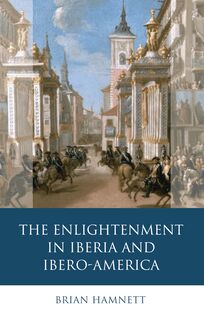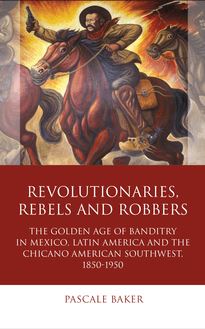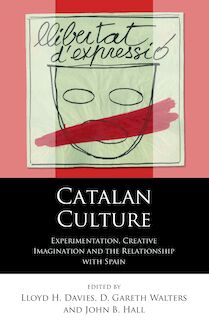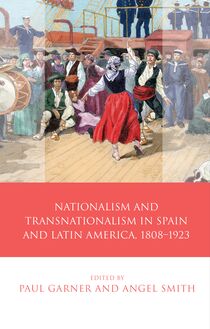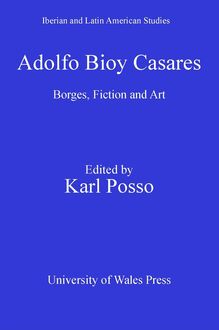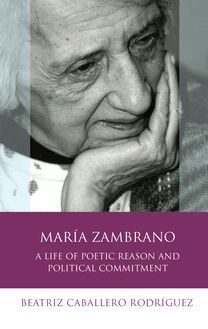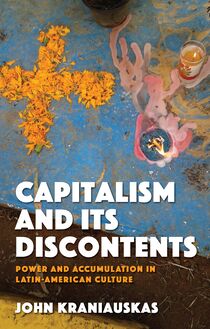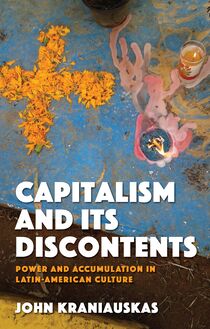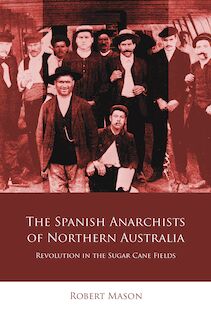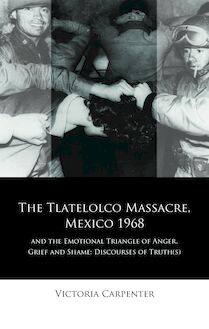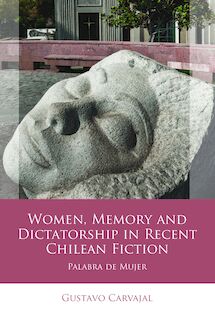-
 Univers
Univers
-
 Ebooks
Ebooks
-
 Livres audio
Livres audio
-
 Presse
Presse
-
 Podcasts
Podcasts
-
 BD
BD
-
 Documents
Documents
-
- Cours
- Révisions
- Ressources pédagogiques
- Sciences de l’éducation
- Manuels scolaires
- Langues
- Travaux de classe
- Annales de BEP
- Etudes supérieures
- Maternelle et primaire
- Fiches de lecture
- Orientation scolaire
- Méthodologie
- Corrigés de devoir
- Annales d’examens et concours
- Annales du bac
- Annales du brevet
- Rapports de stage
La lecture à portée de main
Découvre YouScribe en t'inscrivant gratuitement
Je m'inscrisGraciliano Ramos and the Making of Modern Brazil , livre ebook
Découvre YouScribe en t'inscrivant gratuitement
Je m'inscrisEn savoir plus
En savoir plus

Description
Graciliano Ramos and the Making of Modern Brazil brings updated criticism in English on the work of the prominent Brazilian writer Graciliano Ramos (1892–1953), a key figure in understanding the making of modern Brazil. Building on existing literature, this book innovates through chapters that consider issues such as Ramos’s dialogue with literary tradition, his cultural legacy for contemporary writers, and his treatment of racial discrimination and gender inequality through the multifarious, provocative and enduringly fascinating characters he created. The volume also addresses the question of Ramos’s political involvement during the years of the Getulio Vargas government (1930–45), to revisit established readings of the author’s politics. Through close reading of individual works as well as comparative analyses, this volume takes readers into the complexities of modernisation in Brazil, and highlights the writer’s significance for our understanding of Brazil today.
Sujets
Informations
| Publié par | University of Wales Press |
| Date de parution | 01 juin 2017 |
| Nombre de lectures | 0 |
| EAN13 | 9781783169863 |
| Langue | English |
| Poids de l'ouvrage | 4 Mo |
Informations légales : prix de location à la page 0,2174€. Cette information est donnée uniquement à titre indicatif conformément à la législation en vigueur.
Extrait
IBERIAN AND LATIN AMERICAN STUDIES
Graciliano Ramos and the Making of Modern Brazil
Graciliano Ramos.indd 1 09/05/2017 12:22Series Editors
Professor David George (Swansea University)
Professor Paul Garner (University of Leeds)
Editorial Board
David Frier (University of Leeds)
Lisa Shaw (University of Liverpool)
Gareth Walters (Swansea University)
Rob Stone (University of Birmingham)
David Gies (University of Virginia)
Catherine Davies (University of London)
Richard Cleminson (University of Leeds)
Duncan Wheeler (University of Leeds)
Jo Labanyi (New York University)
Roger Bartra (Universidad Nacional Autónoma de México)
Other titles in the series
Catalonia: National Identity and Cultural Policy
Kathryn Crameri
Melancholy and Culture: Diseases of
the Soul in Golden Age Spain
Roger Bartra
The Poetics of Otherness in Antonio
Machado’s ‘Proverbios y Cantares’
Nicolas Fernandez-Medina
The Spanish Golden Age Sonnet
John Rutherford
María Zambrano: A Life of Poetic Reason and Political
Commitment
Beatriz Caballero Rodríguez
Nationalism and Transnationalism in
Spain and Latin America, 1808–1923
Paul Garner and Angel Smith (eds)
The Enlightenment in Iberia and Ibero-America
Brian Hamnett
Graciliano Ramos.indd 2 09/05/2017 12:22IBERIAN AND LATIN AMERICAN STUDIES
Graciliano Ramos
and the Making of
Modern Brazil
Memory, Politics and Identities
Edited by
SARA BRANDELLERO AND LUCIA VILLARES
UNIVERSITY OF WALES PRESS
2017
Graciliano Ramos.indd 3 09/05/2017 12:22© The Contributors, 2017
All rights reserved. No part of this book may be reproduced in any material
form (including photocopying or storing it in any medium by electronic
means and whether or not transiently or incidentally to some other use of
this publication) without the written permission of the copyright owner.
Applications for the copyright owner’s written permission to reproduce
any part of this publication should be addressed to the University of Wales
Press, 10 Columbus Walk, Brigantine Place, Cardiff CF10 4UP.
www.uwp.co.uk
British Library CIP
A catalogue record for this book is available from the British Library.
ISBN 978-1-78316-985-6
e-ISBN 978-1-78316-986-3
The right of the Contributors to be identifed as authors of this work has
been asserted in accordance with sections 77 and 79 of the Copyright,
Designs and Patents Act 1988.
Typeset by Mark Heslington Ltd, Scarborough, North Yorkshire
Printed by CPI Antony Rowe, Melksham
Graciliano Ramos.indd 4 09/05/2017 12:22For Alice and Leo
Graciliano Ramos.indd 5 09/05/2017 12:22Contents
Series Editors’ Foreword ix
Acknowledgements xi
Notes on Contributorsxiii
Introduction:Sara Brandellero and Lucia Villares 1
Chapter 1:Refections on Graciliano Ramos16
Luiz Ruffato
Chapter 2: Graciliano Ramos and Politics in Alagoas 21
Randal Johnson
Chapter 3: Debris of Worthless Shipwrecks: Caetés, the
Anachronisms and Simulacra of the Modern
Nation 43
Roberto Vecchi
Chapter 4:The Subjectivity of the Werewolf (São Bernardo) 66
Ana Paula Pacheco
Chapter 5:The Dead Woman in the Bedroom:
São Bernardo91
Lúcia Helena Vianna
Chapter 6: A Thick Heart: Migration of Souls and
Meanings 114
Lucia Helena
Chapter 7: The Writing of the Spectral Land in Vidas secas 130
Sara Brandellero
Chapter 8: The Anguish of Revolution 151
Wander Melo Miranda
Graciliano Ramos.indd 7 09/05/2017 12:22viii Graciliano Ramos and the Making of Modern Brazil
Chapter 9: Unearthing Value: Money and Topographies
of the Self in Graciliano Ramos 163
Lucia Villares
Chapter 10: Graciliano Ramos is Not the Author of
Madame Bovary 181
Mario Cámara
Chapter 11: The Freedom of Memory: Autobiography
and Fiction in Graciliano Ramos and Silviano
Santiago197
Aquiles Alencar Brayner
Chapter 12: On Infuences: Graciliano Ramos and Milton
Hatoum 216
Tânia Pellegrini
Index239
Graciliano Ramos.indd 8 09/05/2017 12:22Series Editors’ Foreword
Over recent decades the traditional ‘languages and literatures’
model in Spanish departments in universities in the United
Kingdom has been superseded by a contextual, interdisciplinary
and ‘area studies’ approach to the study of the culture, history,
society and politics of the Hispanic and Lusophone worlds –
categories that extend far beyond the confnes of the Iberian Peninsula,
not only in Latin America but also to Spanish-speaking and
Lusophone Africa.
In response to these dynamic trends in research priorities and
curriculum development, this series is designed to present both
disciplinary and interdisciplinary research within the general feld
of Iberian and Latin American Studies, particularly studies that
explore all aspects of Cultural Production (inter alia literature,
flm, music, dance, sport) in Spanish, Portuguese, Basque, Catalan,
Galician and indigenous languages of Latin America. The series
also aims to publish research in the History and Politics of the
Hispanic and Lusophone worlds, at the level of both the region and
the nation-state, as well as on Cultural Studies that explore the
shifting terrains of gender, sexual, racial and postcolonial identities
in those same regions.
Graciliano Ramos.indd 9 09/05/2017 12:22Acknowledgements
We would like to express our gratitude to the many people who
supported us during the writing and the preparation of this book.
First, we would like to thank all the contributors who took part in
this project. We are also most grateful to Sarah Lewis and all the
editorial team at University of Wales Press for their guidance and
help in the various stages of preparation of this book, and to the
readers for the feedback on the manuscript. We thank the support
of our academic institutions, Leiden University and its Centre for
the Arts in Society (LUCAS) and Cambridge University, for their
support during the preparation of this manuscript. Special thanks
go to Silviano Santiago for his advice and guidance; Liv Sovic for
her time and support; Beth Silva for inspiring ideas and references.
We also thank the conference organizers, chairs and audiences who
provided us with the opportunity to test and reshape our ideas
during the writing of the chapters of the book. We are also very
grateful for the translators Julia Spatuzzi Felmanas and Phillip
Wigan for their translations of Ana Paula Pacheco’s, Lucia Helena’s
and Wander Melo Miranda’s chapters. The chapters by Roberto
Vecchi, Lúcia Helena Vianna and Tânia Pellegrini and the
interview with Luiz Ruffato were translated into English by Sara
Brandellero. All translations are hers unless otherwise stated. We
would also like to thank Ricardo Ramos Filho and Editora Record
for granting us permission to use quotations from Graciliano
Ramos’s originals. We also thank the publishers and editors of the
chapters translated and published here that were published
previously in Portuguese. Lúcia Helena Vianna’s chapter ‘The Dead
Woman in the Bedroom: São Bernardo’ was frst published as ‘A
mulher morta no quarto’ in the book Cenas de amor e morte na fcção
brasileira: o jogo dramático da relação homem/mulher na literatura (Rio
Graciliano Ramos.indd 11 09/05/2017 12:22xii Graciliano Ramos and the Making of Modern Brazil
de Janeiro: EdUFF, 1999); Lucia Helena’s ‘A Thick Heart: Migration
of Souls and Meanings’ frst appeared as ‘O coração grosso:
migração das almas e dos sentidos’ in Alceu – v. 1– n. 2 p.63ª 76
jan-jun 2001, Revista de comunicação, cultura e política/ Puc/Rio – Rio
de Janeiro, Brasil, ISNN 2175–74 (online) and Ana Paula Pacheco’s
‘The Subjectivity of the Werewolf( São Bernardo)’ was previously
published as ‘A subjetividade do Lobisomem’, in Iumna M. Simon
e Irenísia T. de Oliveira, Modernidade e tradição na literatura brasileira,
(São Paulo: Nankim Ed., 2011), and in Revista literatura e sociedade,
13 (2011), 45–57. Last and not least we would like to thank our
families for their love and patience during this journey.
Graciliano Ramos.indd 12 09/05/2017 12:22Notes on Contributors
Sara Brandellero (DPhil Oxford) is Assistant Professor in Brazilian
Studies at Leiden University (Netherlands) having previously
taught at the Universities of Oxford and Leeds (UK). She
specializes in Brazilian literature and cinema. Her publications include
the book On a Knife-Edge: The Poetry of João Cabral de Melo Neto
(Oxford: Oxford University Press, 2011) and the edited volume The
Brazilian Road Movie: Journeys of (Self)Discovery (Cardiff: University of
Wales Press, 2013).
Aquiles Alencar Brayner holds graduate degrees in psychology
from the Federal University of Ceará (Brazil) and Latin American
studies from Leiden University (Netherlands). He has an MA
degree in Latin American literature from Leiden, an MSc degree in
library and information sciences from the City University of
London, and a PhD degree in Brazilian literature at King’s College
London. His monograph The Literature of the Senses (Cologne:
Lambert, 2009) analyses the representation of the body in the work
of João Gilberto Noll.
Mario Cámara holds a PhD in Brazilian literature from the
University of Buenos Aires, and is professor of literary theory and
analysis at the National University of the Arts (Buenos Aires) and
affliated researcher to the National Council for Scientifc Research.
His publications include El caso Torquato Neto, diversos modos de ser
vampiro en Brasil en los años setenta (Florianópolis: Lumen editor,
2011), Cuerpos paganos, usos y efectos en la cultura brasileña 1960–1980
(Buenos Aires: Santiago Arcos Editor, 2011; republished in
Portuguese by EDUFMG in 2014), A máquina performática (with
Gonzalo Aguilar, in press). He is a member of the editorial board of
Graciliano Ramos.indd 13 09/05/2017 12:22xiv Graciliano Ramos and the Making of Modern Brazil
Grumo, literatura e imagen. He was twice the recipient of grants by
DAAD for research at the Ibero-American Institute in Berlin, and
by the Coimbra Group for research at Leiden Univer
-
 Univers
Univers
-
 Ebooks
Ebooks
-
 Livres audio
Livres audio
-
 Presse
Presse
-
 Podcasts
Podcasts
-
 BD
BD
-
 Documents
Documents
-
Jeunesse
-
Littérature
-
Ressources professionnelles
-
Santé et bien-être
-
Savoirs
-
Education
-
Loisirs et hobbies
-
Art, musique et cinéma
-
Actualité et débat de société
-
Jeunesse
-
Littérature
-
Ressources professionnelles
-
Santé et bien-être
-
Savoirs
-
Education
-
Loisirs et hobbies
-
Art, musique et cinéma
-
Actualité et débat de société
-
Actualités
-
Lifestyle
-
Presse jeunesse
-
Presse professionnelle
-
Pratique
-
Presse sportive
-
Presse internationale
-
Culture & Médias
-
Action et Aventures
-
Science-fiction et Fantasy
-
Société
-
Jeunesse
-
Littérature
-
Ressources professionnelles
-
Santé et bien-être
-
Savoirs
-
Education
-
Loisirs et hobbies
-
Art, musique et cinéma
-
Actualité et débat de société
- Cours
- Révisions
- Ressources pédagogiques
- Sciences de l’éducation
- Manuels scolaires
- Langues
- Travaux de classe
- Annales de BEP
- Etudes supérieures
- Maternelle et primaire
- Fiches de lecture
- Orientation scolaire
- Méthodologie
- Corrigés de devoir
- Annales d’examens et concours
- Annales du bac
- Annales du brevet
- Rapports de stage
